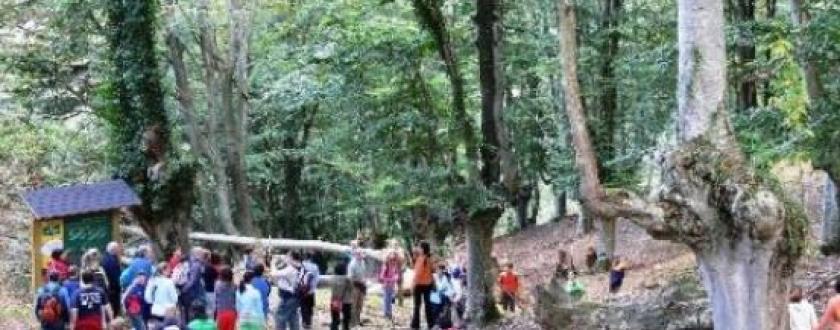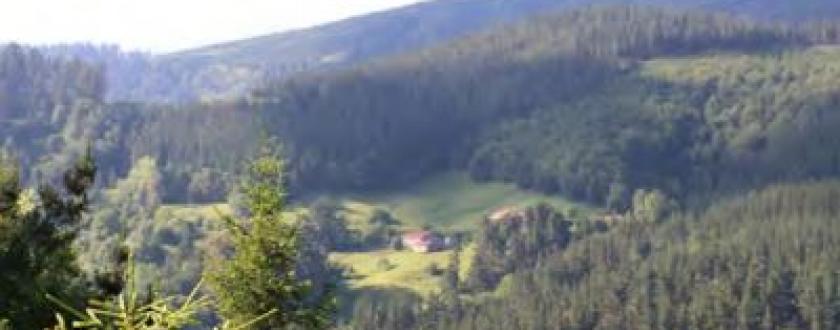Sustainable and multifunctional forest management on uncultivated public land in Amurrio
Description of the case study
Some 58.18% of the surface area of the municipality of Amurrio is forested, of which 60.65% is publicly owned.
The Amurrio sustainable forest management strategy comprises the development of a Forestry Plan for the Amurrio Uncultivated Public Land Area (854 ha) to improve the resistance and resilience of the forest to climate change. The project also predicted an improvement in local biodiversity as a consequence of ecological restoration work and an increase in native vegetation.
The Plan is currently being reviewed and assessed ahead of its ten-year renewal.
The plan is based on multifunctional forest management for improving the resilience of the forest system and in turn facilitating its adaptation to climate change.
The project is also focussed on strengthening the positive externalities of forest masses relative to adaptation of the local area, given that forests help to regulate the local microclimate, improve air quality and provide attractive public spaces for the local population, in turn helping to improve the health of Amurrio residents.
The specific objectives of the Management Plan for the Amurrio Uncultivated Public Land Area relative to climate change adaptation include a number of measures to strengthen the multifunctional nature of forest masses, as follows:
- Develop a mix of uses: slow-growth trees, grazing, recreation, education, mycological use, conservation and productive forest.
- Support the regeneration of mixed forest mass towards forest areas with native species.
- Increase forest biodiversity by restoring degraded areas (riparian systems and abandoned pastures).
The solutions taken forward in the project are as follows:
- A 19% (116 ha) reduction in coniferous forest.
- A 160% (94 ha) increase in leafy forest mass.
- A 15 ha increase in native vegetation cover via ecological restoration at different locations.
- Recovery of strips of riparian forest of up to 5 and 25 metres width in all water courses.
- Planting strips of leafy forest to form fire breaks at the edges of all monoculture forestry plantations.
Case mainly developed and implemented via objectives from other non-adaptation policies, though with significant consideration for climate change adaptation aspects.
Amurrio Town Hall, Álava Regional Council.
Additional Information
The project is promoted by Amurrio Town Hall with financial and technical support from Álava Regional Council and the participation of Amurrio residents.
Success: important publicly owned municipal natural heritage; effective and more productive management of public natural resources; generation of new public spaces in the natural environment; specific funding instruments for innovative forest management.
Limiting: economic barriers to planning and executing actions; fire risks; long timescales for evaluating the impact of actions.
Creating the Management Plan for Uncultivated Public Land involved an initial investment of €26,000. Some €60,000 are also invested annually for actions on uncultivated public land. Around €25,000 are obtained each year for management from Álava Regional Council’s forestry grants plan.
This local initiative is framed as a municipal land use management policy and is supported by Álava Regional Council's forestry grants plan.
2006-2016 (10 years - complete, under review)
Reference information
PYRENEAN CLIMATE CHANGE OBSERVATORY
Avenida Nuestra Señora de la Victoria, 8
22.700 - Jaca
Huesca - España
+34 974 36 31 00
info_opcc@ctp.org






